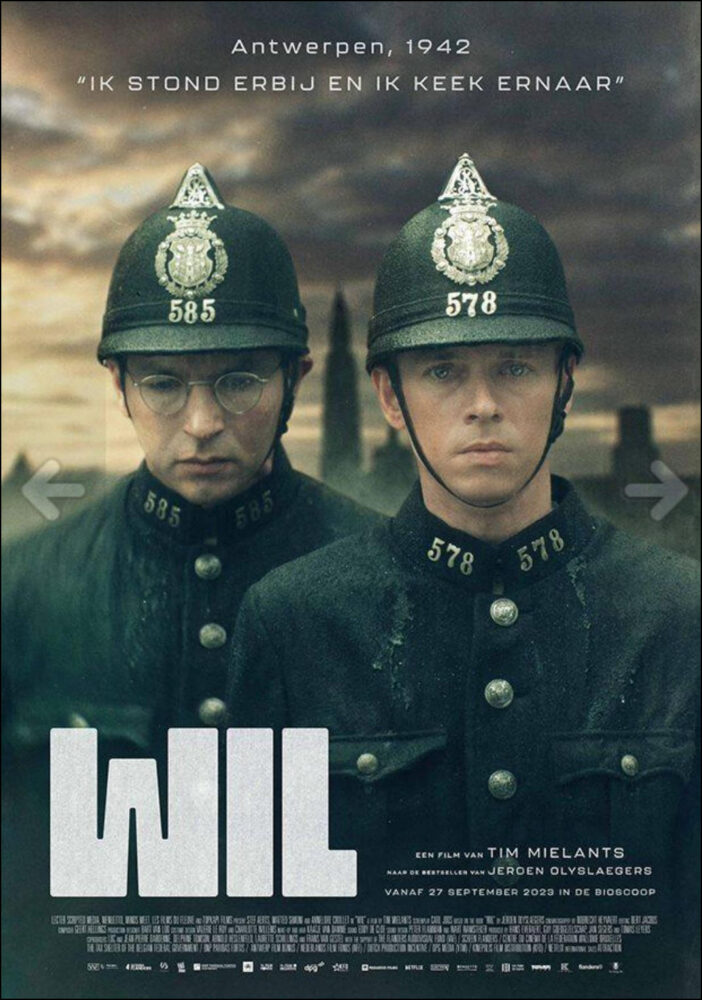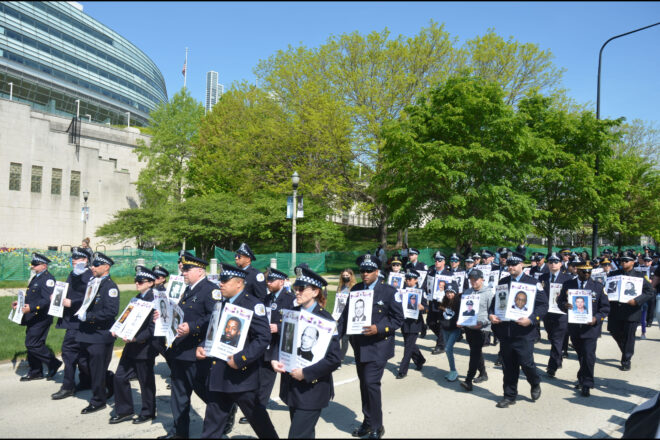Each of us is commanded to do good. Everyone. The obligation to do good is always present, and it is particularly intense in the presence of evil. In our modern times, evil is not discussed much, and the notion of “good versus evil” leaves many people uncomfortable. That is unfortunate. Without contemplation about the timeless struggle in defense of good, we are all at risk of being unprepared. The need to be prepared for challenges, while seeking to advance good, is particularly important for all who hold positions of authority. It is here that a 2023 film set during the Nazi occupation of Belgium is a recommended resource. Not as a look back, but as preparation for what may await any, or all of us. It is an essential consideration for all working within the policing profession.
Estimated reading time: 7 minutes
Wil – A Dark Film
The Belgian film “Wil“ is a recent addition to the Netflix lineup. The translated version of the film is listed on Netflix as “Will,” with the second letter “L.” But, have no fear, at least on the foreign language front, the dubbed English is seamless.
Generally speaking when asking if a movie is “good,” we mean good, as in entertaining. No, Wil (or Will) is not entertaining. That is not to say it is not good, as in well made. The production quality, writing, and acting are topnotch. But, this is not a family or date night movie selection. The film is dark, even disturbing. It is violent. No, not in a horror or action film sense. The film realistically depicts evil, oppression, fear, courage, resistance, cowardice, and collaboration.

The film is thought provoking and engaging. If you carry a badge, set aside the time to see it. It is not an academic documentary. You will not be bored. Yet, you will be challenged. The film does show the distinctions between being a witness, victim, or participant in evil. It shines a spotlight on the distinction between resistance and collaboration.
Some Context
The film opens with narration in the voice of Stef Aerts in his role as “Wilfried Wils.” The narrative is from Wils looking back to 1942, when he was a newly-appointed police officer in Antwerp, Belgium. At that time, Antwerp was under the military occupation of Nazi Germany. As the narrator, Wils provides a caution about the ability to fully understand history. In part, he says:
“People say, ‘Gosh, you survived the war. What’s more, as a policeman, respect.’ Others will say, ‘You scumbag, you should have done this, or that. Why did you let that happen?’ You know what? People are judgmental. And it’s always after the fact. But when you’re in the middle of it, if you don’t know what tomorrow will bring, and nobody knows that, not you, not me, well, maybe you don’t know shit.“
The atrocities that occurred at the hands of the Nazis are many. The Holocaust stands as a stark reminder that evil exists, and evil is aided by those who choose to collaborate rather than resist. The entirety of Wil takes place within the city of Antwerp. But, there and across Europe under the Nazi occupation, people were stripped of their human dignity, rights and property, and millions lost their lives. During World War II, millions of victims came from cities like Antwerp, where they hoped that the legal system would protect them.
Are such threats to free societies and individual liberty impossible today? Oh right. In our modern times, evil is not discussed much, and the notion of “good versus evil” leaves many people uncomfortable.
I Saw Two Bears
In the film’s opening scene, Wilfried Wils is among a graduating class of new police officers. The commanding officer addressed the class telling them first:
“Welcome to the Antwerp police force. You men are the buffer between our people and the Germans. You command respect with your uniform, so keep it clean. And yourselves as well. You must always check first with your superior officers. And follow their orders always, of course, to the very letter. Alright?”
Following this official guidance, the commanding officer instructed that the door to the meeting area be closed. He then spoke “off the record,” and he proceeded to tell the new officers that what they learned in training would be of no value to them when they actually went to work. He provided this additional instruction, “there’s only one thing to get into your thick skull. One thing.” To communicate the one thing, he began to sing a 19th Century Flemish children’s folk song, “Ik Zag Twee Beren” – “I Saw Two Bears.”
As he sang, the commanding officer instructed all of the officers to sing along with him. The song lyrics tell how the singer saw “two bears buttering their bread,” and other strange things, to which the chorus with each observation is how the singer “stood by and watched it all.” The key point and instruction was in that chorus, which the commander then repeated:
“‘I stood by and watched it all?’ Put it firmly in your skull. That’s the thing you need to remember. You stand by and watch.”
The commanding officer was instructing the new officers not to get involved. Not to take action. Such guidance was not seeking to resist the German occupation nor cause any confrontation with evil.
The False Choice of Middle Grey
What we come to learn is that from his first night on patrol, Officer Wils is thrust into the conflicts caused by an oppressive occupation. Wils and a second brand new police officer are ordered by a German soldier to accompany that soldier to the apartment of a Jewish family. The two police officers are ordered to guard the door to prevent the family from escaping, as the German soldier attempts a shakedown. Despite undergoing emotional and physical abuse, the father is unable to pay the demand for money. The incident quickly escalates further after the soldier takes the father, mother and a small girl into custody.
The scene was the first of several brutal and deadly moments to which Officer Wils would bear witness and be thrust into. Wilfried Wils and his fellow officers were wearing police uniforms, intended to represent their community. Their obligation to do good remained. However, the Antwerp officers had been subjected to the coercive power of an occupying force. The challenges these officers were confronted with, as well as the distinction between collaboration with evil and resistance to it, is a compelling story.
Evil and Doing Nothing
At the end of the film, Wils provides some additional narration, which began: “And afterwards people kept their mouths shut. And yesterday immediately became history.” Perhaps they were thinking, I saw two bears buttering their bread, and I stood by and watched it all. Yet, the 1867 instruction from John Stuart Mill still rings true:
“Bad men need nothing more to compass their ends, than that good men should look on and do nothing.”
If in the time ahead you are a witness to evil, will you actively resist that evil? When oppression is most intense, the choice is a dichotomous one. While there is ultimately no middle ground between collaboration and resistance, there are always consequences. History has shown, some people will collaborate with those in power, even if that power advances evil. Many others will simply seek to ignore the evil. These people will remain silent while others suffer. Well, they will seek to remain unaffected, so long as they themselves are not directly victimized. Others will seek to do good, and they will resist. But again, there are always consequences.
Cops Ask Questions
Particularly when you are a police officer, is merely not directly participating in evil sufficient?
Here is my most direct answer: No. There is a duty to intervene. Each of us must resist and challenge evil. We are not commanded to merely stand by and witness all. The command is to do good.
Watch Will. Reflect on the lessons of history. Consider the possibilities and challenges of an uncertain future.
We are interested in your thoughts, and invite you to comment below.



Well written as always – and especially relevant today. So many good officers are forced to stand by and watch evil. Pursuits are all but prohibited. Mistakes are treated no different than misconduct. Discipline is excessive. The left has emboldened criminals and demonized the police.